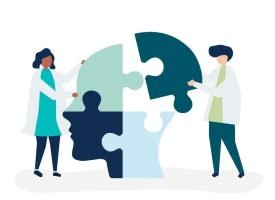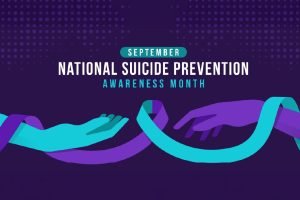“The world is a vampire” is a telling line from the powerful song, “Bullet with Butterfly Wings” by The Smashing Pumpkins. That is why we wanted to write this article this month around the differences between a charity with a worldwide mission and a for-profit organization.
A nonprofit asks “How can we help?” A for-profit asks “How much can we charge?” Same service, different soul.
As Executive Director of our charity, STAR Network Foundation – and as a psychologist who has spent over three decades in the trenches of treatment and advocacy – I want to speak candidly to you today about the mission that drives us and the values that define us.
We and the CPTSD Foundation are not just organizations with a polished website or a slick app. We are movements. Two missions. Communities built to confront what I believe are the most devastating public health crises of our time: attachment disorders, narcissistic abuse, and the vital and requisite recovery from Complex Post-Traumatic Stress Disorder (CPTSD).
💔The Crisis We Face
Attachment trauma and narcissistic abuse are insidious. They erode the very foundation of human connection, dignity, and self-worth. Yet, despite their prevalence, these issues remain largely misunderstood, underfunded, and dangerously unregulated. In this vacuum, too many for-profit entities have emerged – offering glossy promises, glossy newsletters, and empty promises not by a licensed clinical expert but by slick words, eye candy and “junk science” delivering little more than exploitation.
I’ve seen it firsthand. As a social worker and psychologist who has also faced mental health challenges personally, I’ve watched countless individuals fall prey to organizations more concerned with profit margins than healing outcomes. They build beautiful facades – websites, apps, newsletters – but behind them often lies a lack of accountability, transparency, and measurable results.
🎯 Why STAR Network Exists
STAR Network was born from a deep need and was my third Foundation to address mental health solutions and to take the shame and stigma out of mental health, of which I too was a victim over 40 years ago. The first was TV Aftercare in the 1990s, which was created to offer support and solutions – not just sympathy – to those exploited by the television industry. When we launched the Leeza Gibbons Memory Foundation, our goal was to give caregivers access and dignity, especially when asking for help felt like a burden. Too often, they were dying before their loved ones because of a lack of access to quality care and to emphasize that it was vital for them to take their oxygen first.
That same spirit lives here today at the STAR Network Foundation. Our community is built around access, dignity, and truth. We don’t sell recovery. We support it. We don’t capitalize on pain. We validate it. And we don’t exist to profit. We exist to serve.
🏛️️The Third Pillar: Treatment with Accountability
People often ask us what we mean by the third pillar of treatment. To me, it’s simple – accountability. As someone who has both provided and received care, I believe that any group profiting from another’s suffering must be held to the highest standard of outcomes and ethics.
In the narcissistic abuse recovery space, this is especially critical. It’s an unregulated world where anyone can claim expertise. Before you respond to an unsolicited email, subscribe to a newsletter, or pay for a program based on a pretty website, I urge you to research and do your due diligence.
Ask professionals. Ask us. Ask another trusted foundation. What looks like an oasis may be nothing more than a profitable mirage designed not for your recovery, but to profit the business holders. This treatment pillar was designed to offer oversight and clinical verification for all consumers who were even thinking of entering a program that claimed to dedicate itself to the treatment for Complex Post-Traumatic Stress Disorder (CPTSD). I’ve seen the transgressions of bad actors in the addictions field, and felt that CPTSD was the next mental health frontier that would no doubt be exploited for money as opposed to good clinical outcomes
♥️ Why We Chose to Be a 501(c)(3)
When we became a nonprofit, it was a deliberate choice. A charity is owned by no one. It belongs to the community. If it fails, it fails together. If it thrives, it thrives together. That’s why the federal government oversees our funding. We are mission-incentivized, not profit-driven.
Quick-fix treatment programs, trendy apps, and gamified healing tools are often unregulated. The buyer must beware. And as we say in TAR Anon, audit your relationships. Surround yourself with people and organizations who meet you halfway, who don’t bully or exploit you. And while you’re doing that, take care of yourself – through emotional regulation, reparenting, and community support. Their philosophy should also be your philosophy in this new world of the Internet, social media, unsolicited newsletters and apps claiming they know how to help you recover from the insidious world of toxic relationships. There are no quick fixes, and it is always critical in our own world of healing our lives to realize that the world will promise you quick fixes and medicine delivered out of the trunk of the car. It is crucial that you check into safe resources – such as foundations and charities like ours – before you jump into their trunks. We all have met that one person in our lives that when the mask dropped, our lives dropped to unspeakable depths as well.
🤝Our Promise to You
At STAR Network, we offer free and accessible support groups through TAR Anon and its 12-step recovery program. No fees. No gimmicks. Just healing. Because recovery should never be a luxury – it should be a right.
If someone tells you they’ve found great help because a website, an app, an email, or a treatment center looked good, ask a verified foundation like ours if they have our endorsement. We’re here to foster your recovery, not capitalize on it.
Thank you for trusting us. Thank you for being part of this mission. Together, we are not just healing – we are changing the landscape of care as it pertains to attachment disorders, narcissistic abuse, and recovery from CPTSD.
Stay Gold, STARs. We are here to answer any and all questions raised by this article. Please connect with us at contact@starnetwork.org.
James Huysman, PsyD, LCSW
Executive Director







